Countdown to Solo Transat Race to New York
Published on January 26th, 2016
In just under 100 days time, a growing fleet of first-class ocean racers and fearless adventurers will set sail on the world’s oldest solo transatlantic race from Plymouth to New York – The Transat.
This year’s race has attracted a star-studded line up of offshore greats, from the likes of Vendée Globe competitors Sébastien Josse and Armel Le Cléac’h in the IMOCA60, to Transat Jacques Vabre winner Erwan Le Roux and Route du Rhum winner Thomas Coville on the flying multihulls and seasoned offshore competitors Miranda Merron and Thibaut Vauchel in the Class40.
The Transat is a nostalgic race steeped in history, full of adventure and touched upon by tragedy. Established in 1960 by Sir Francis Chichester and Blondie Hasler, Hasler’s legendary vision for the race is still as relevant today as it was then – The Transat is about “one man, one boat, one ocean.”
But while the principle behind the race remains the same, a new generation of ocean racing machines sees a classic reborn in 2016. Giant Ultimes, flying Multi50s, powerful IMOCA60s and hardy Class40s, helmed by some of the world’s finest solo sailors, could make for one of the fastest crossings yet.
“We are absolutely delighted by the turn out and the calibre of the skippers who are taking on the challenge of one of the greatest solo races in the sport,” said Hervé Favre, Offshore Events Director for OC Sport. “With the right conditions we could see records tumbling in all four classes.”
Paying homage to The Transat’s origins, the 14th edition will set sail from Plymouth – the first city to play host to the race. From Plymouth breakwater, the fleet will race 3,000 miles to Brooklyn in New York, where The Transat first finished 56 years ago.
Between the two cities, competitors will be alone faced with the towering waves of the Atlantic, blinding fog, ferocious winds and the danger of ice drifting down from the Arctic. The fleet will spend anywhere between eight and 18 days at sea, dependent on the boat. Racing upwind for the majority of the race, The Transat will be a hard slog for the skippers. Frequent rest, good nutrition and staying hydrated will be key to staving off fatigue and staying in the game.
The Atlantic is a dangerous playground and intelligent sailing will be the key to success in New York City, as Race Director Gilles Chiorri explained: “The Transat is the mother of all transatlantic races, it launched the trend for solo sailing. The Transat is the most challenging transatlantic to win. The race will be characterised by the low pressures and stormy conditions associated with heavy swell, sometimes within the vicinity of icebergs. The winner in each class (Ultime, IMOCA60, Multi 50, Class40) will step on the path of the previous winners, including Chichester, Tabarly, Colas, Poupon, Desjoyeaux, Joyon, and Loick Peyron, among others.”
With less than 100 days to the start of this epic, The Transat boasts an international fleet of almost 30 boats including three Ultimes, five Multi 50s, seven IMOCA 60s, 11 Class40s, two female skippers, two Brits, 21 French entries, one German and The Transat’s first Japanese entry.
Entries for the 2016 Transat are open until 31st January. To enter, please click here.
About The Transat
The OSTAR (Observer Singlehanded Trans-Atlantic Race) was created in 1960 by a handful of pioneering sailors. The race was organised every four years by the Royal Western Yacht Club (RWYC) from 1960 through to the 2000 event, albeit with a lot of involvement from the French event organiser Pen Duick in the 90s, in order to cater for the demands of the professional campaigns that dominated the event.
After the 2000 edition, OC Sport stepped in to develop the event and acquired the rights to the professional part. OC Sport organised The Transat in 2004 and 2008, the 2012 edition was deferred at the request of IMOCA (the largest competing class).
The RWYC continues to organise a solo transatlantic race for Corinthian and non-professional sailors that is still known as the (O)STAR,. This race usually falls a year after the professional big boat race i.e. 2005, 2009, 2013, 2017. Both the amateur Yacht Club event and The Transat have the right to link to the history of the original race created in 1960, and to the rich history it has produced.
The first race was competed by just a handful of pioneering sailors including Francis Chichester and Blondie Hasler who coined the phrase: “One man, one boat, the ocean.” There has been tragedy, dramatic rescues and exceptional drama since the race began in 1960. Over time The Transat, as it is known today, has evolved and now serves the professional end of offshore sailing. But there are few modern day races that can reflect on such a long and outstanding history.
Monohull IMOCA 60 record: 12 days, 11 hours and 45 minutes set by Loick Peyron (FRA) on board Gitana in 2008. Multihull 60ft record: 8 days, 8 hours, 29 minutes set by Michel Desjoyeaux (FRA) on board Géant in 2004.
Source: The Transat


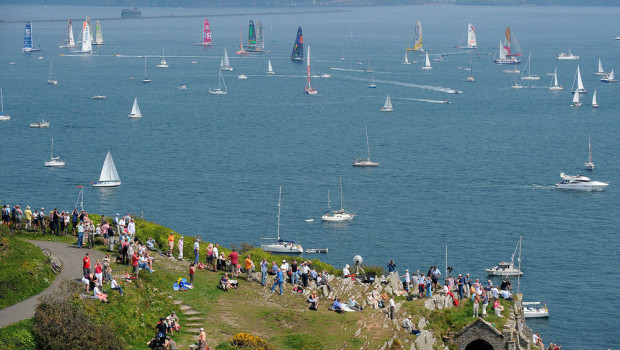

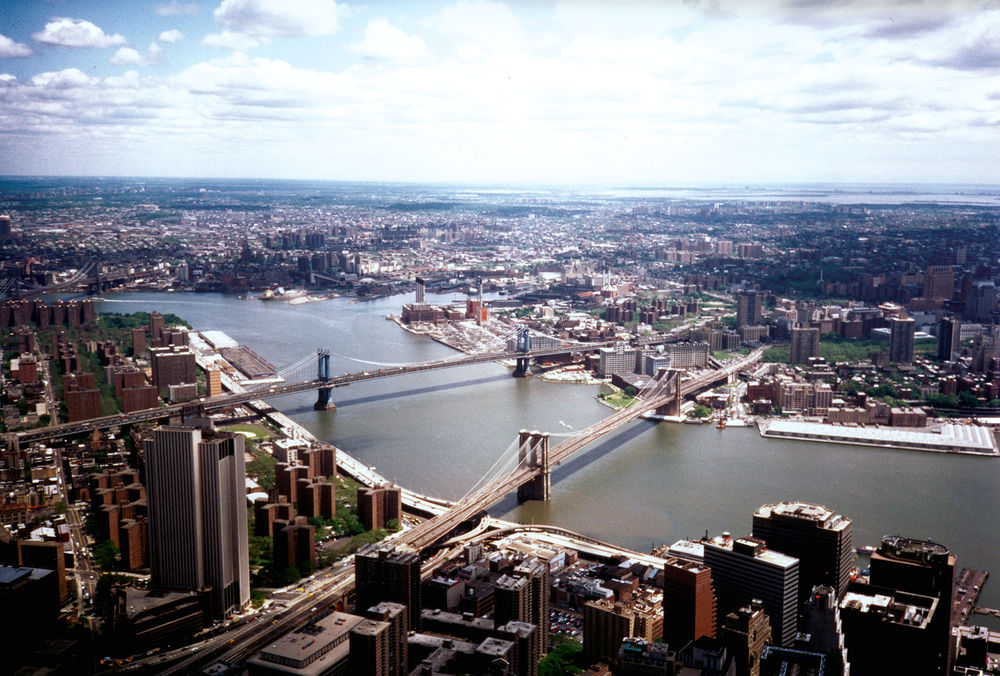
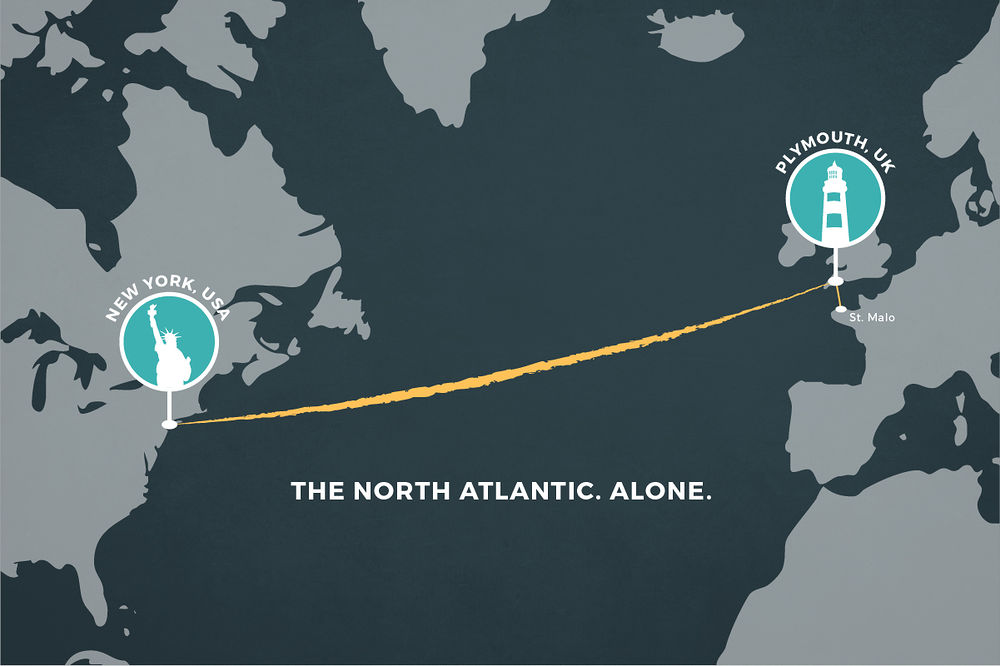

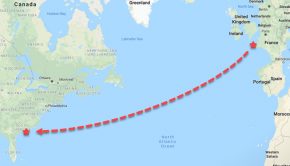
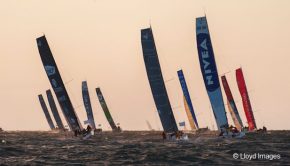
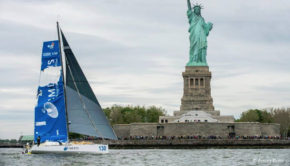
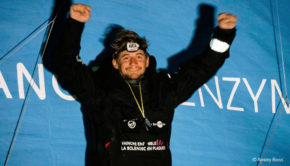
 We’ll keep your information safe.
We’ll keep your information safe.